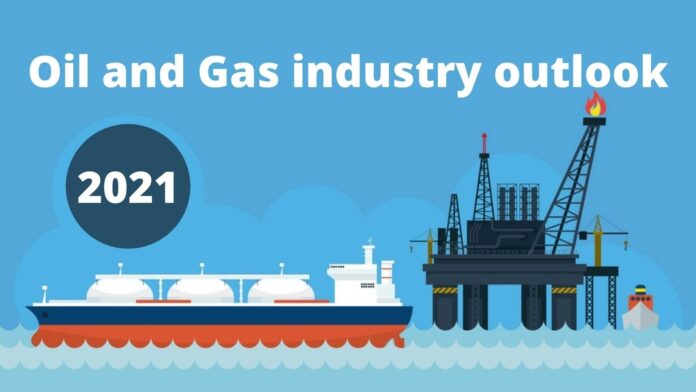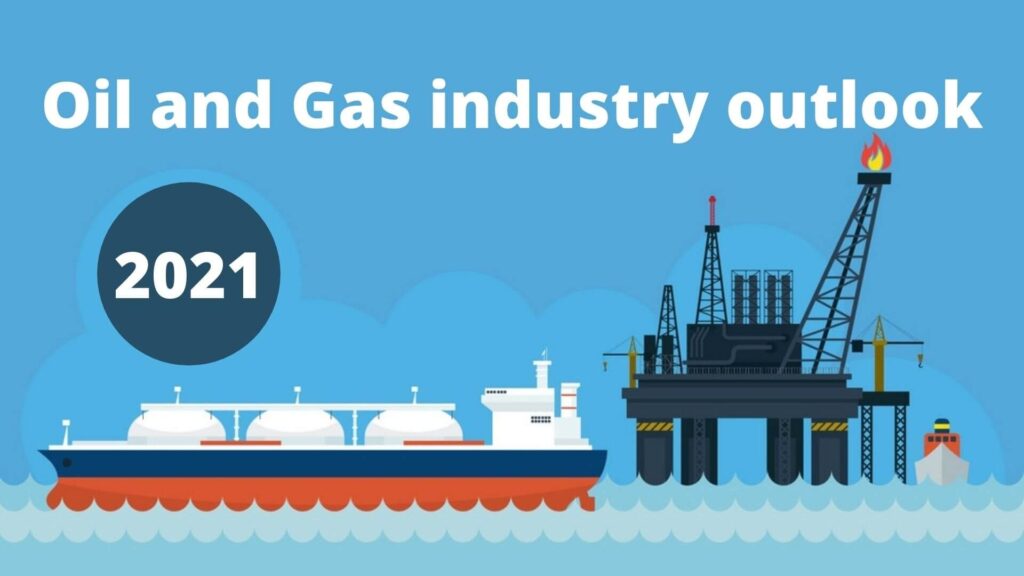
(www.MaritimeCyprus.com) All oil and gas companies were challenged in 2020. Flights were grounded, fleets were parked, factories were closed and workers stayed home. By March, global demand for oil and gas products and services had been decimated. The Russia–Saudi Arabia price war forced an oversupply disaster, collapsing prices and pushing US oil into negative territory for the first time in history. The market crash left the entire oil and gas value chain in disarray. As the year progressed, demand and prices slowly stabilized, but far below the levels at the start of the year.
The annual survey of senior oil and gas professionals shows how 2020 has taken its toll on the industry. Only 39% are confident about industry growth in 2021, and the same proportion (39%) are pessimistic. Just two years ago, 76% were confident and only 7% were pessimistic.
But there are some positives that the industry can take into 2021. The industry appears to be more confident about the year ahead than it was following the last oil price crash in 2014, when only 28% of our survey respondents were confident about industry growth in the year ahead – some 11 points lower than this time around.
Uncertainty over capex flows
Another difference is spending, where the industry is not hitting the brakes as hard as it did after the last crisis. While the proportion of respondents expecting to either maintain or increase capital expenditure (capex) in the year ahead has fallen to 62% – down from 72% going into 2020 – by the fourth quarter of 2015, a similar period (roughly a year) into the last downturn, it had fallen to 43%.
There are two possible explanations for this difference. On the one hand, the industry may be expecting the COVID-19 vaccination roll-out to prompt a strong and quick recovery in demand for oil and gas. In 2015–17, by contrast, there was an oversupply imbalance without the expectation of a sharp increase in demand, so it was reasonable then to expect a longer period of pain.
Another possibility, however, is that these more robust capex intentions are due to strengthened commitments to transformation into a lower-carbon energy system. Our research supports this, with greater expectations to increase capex among those who are actively adapting to a low-carbon energy mix (65% compared with 52%); meanwhile 57% of respondents overall say that their organization will increase investment in renewable energy projects in 2021.
Where companies do invest in oil and gas projects, they are likely to choose quicker and more flexible options. “For 2021, in a period of uncertainty, I would not expect companies to embark on any new multi-billion-dollar greenfield projects,†says Michael Cohen, chief US economist and head of oil analysis at energy major BP. “It will be a world for advantaged hydrocarbons, those with low marginal costs and short cycles – and that's not just tight oil, it's also tiebacks, brownfield redevelopments and enhanced oil recovery for example.â€
Is it different this time?
It is not clear what a post COVID-19 world will look like. As US Federal Reserve chairman Jerome Powell said in late 2020: “We're not going back to the same economy."
The idea that things are not going back to what we are used to has been a thread running through every theme of this year’s research. “The oil and gas industry is used to being submerged underwater during cyclical downturns – we hold our breath and then come up again when conditions improve,†says Erlend Fjøsna, head of innovation and digital partnering at Technip FMC, a global oil and gas services company. “We are used to adapting, but this is not like what we are used to. This is a step-change down in the total volume of projects. It is sustained lower demand and lower prices.â€
For more details click below to download the DNVGL research report.
Source: DNVGL

ABOUT DNV GL
DNV GL is a global quality assurance and risk management company. Driven by our purpose of safeguarding life, property and the environment, we enable our customers to advance the safety and sustainability of their business. Operating in more than 100 countries, our professionals are dedicated to helping customers in the maritime, oil and gas, power and renewables and other industries to make the world safer, smarter and greener. As the technical advisor to the oil and gas industry, we bring a broader view to complex business and technology risks in global and local markets. Providing a neutral ground for industry cooperation, we create and share knowledge with our customers, setting standards for technology development and implementation. From project initiation to decommissioning, our independent experts enable companies to make the right choices.
https://youtu.be/ZSSW4y7hBx4














